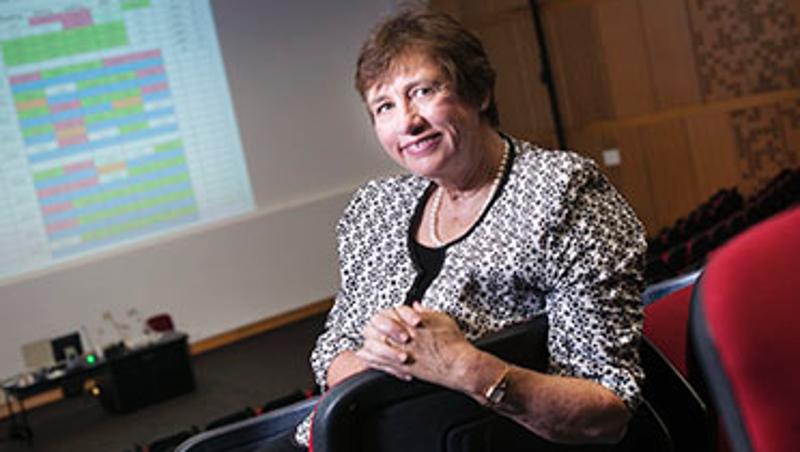
National testing is driving improvements to students' results and a QUT-based data analysis tracking method is being used in Australian schools to prove it, says leading education academic Dr Judy Smeed.
Dr Smeed from QUT's Education Faculty, School of Professional Learning, created the method that pinpoints strengths and weaknesses in the key NAPLAN areas of numeracy, reading, writing, spelling, grammar and punctuation.
She said her data analysis method was the only one of its kind to measure if a school had "value-added" to its own overall performance on a yearly basis by responding and changing some teaching methods.
"If test data remains on computers or sits in the drawers of staffroom desks it has no power and the teaching will remain unfocused and unchallenged," she said.
"We identify what curriculum areas are doing well and where the problem areas are so they can be fixed.
"We teach the teachers how to track where the school, the class and the individual students are struggling."
The 2014 NAPLAN full report is expected to be released by the Australian Curriculum, Assessment and Reporting Authority (ACARA) in December.
Dr Smeed was highly critical of reports students were kept home during national tests for fear of lowering a school's overall test score.
She said schools needed the data on each student so educational programs could be tailored and focussed for the individual.
"It is up to both parents, teachers and principals to boost children's confidence in sitting exams," she said.
"Unless there are quite specific external factors involved, it is unhelpful to take a student out of a test.
"It is more difficult to track them if they aren't sitting the test."
With 40 years of teaching experience, Dr Smeed is well-known within the education sector as being quietly committed to helping students from all backgrounds and her analysis is in high demand.
She has been dubbed the 'data guru' and regularly travels to schools across Queensland and interstate.
Dr Smeed had welcomed improved NAPLAN results in low-socio economic areas and overseen rapid improvements in schools in north Queensland as a result of the implementation of the Over Time Assessment Data Analysis (OTADA).
"It identifies in a socially-just way education trends of cohorts of children from Years 3 to 9," she said.
"If a trend emerges using the analysis it can alert the principal to closely examine the content and teaching of a subject, concept or skill at a particular year level."
Dr Smeed said up to 300 schools had used her data analysis method and warned strategies were needed to address downward trends too.
"I have turned a results-driven method of analysis into an education improvement model," she said.
Dr Smeed also has a reputation for boosting year 12 Queensland Core Skills (QCS) results.
She has worked with five of the top 10 performing schools in Queensland for OP rankings in 2014 and seven of the top 10 performing Vocation Education and Training (VET) schools.
She said QUT was the first university in Australia to teach an undergraduate unit solely devoted to the analysis and implementation of assessment for schools.
She also recently presented her research at a key education forum in the United Kingdom.
To read Dr Judy Smeed's published papers in Education journals click here
Media contacts:
Debra Nowland, QUT media officer (Mon/Wed/Thur), 07 3138 1150 or media@qut.edu.au
After hours, Rose Trapnell, 0407 585 901


